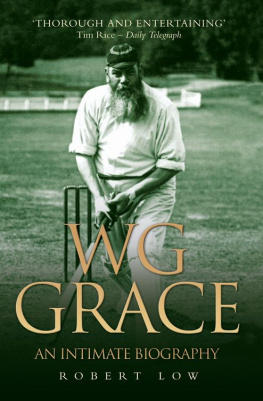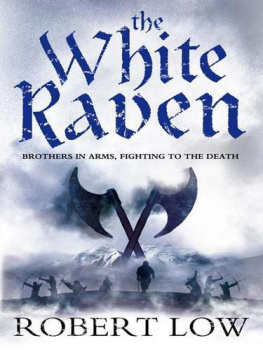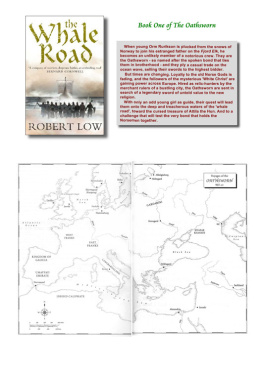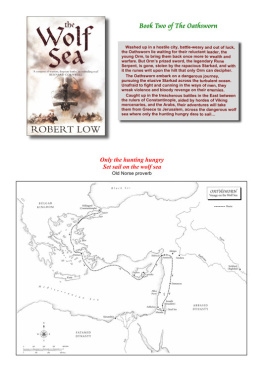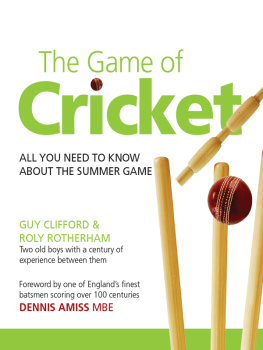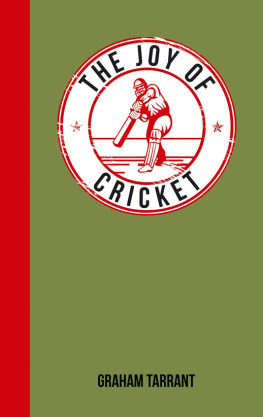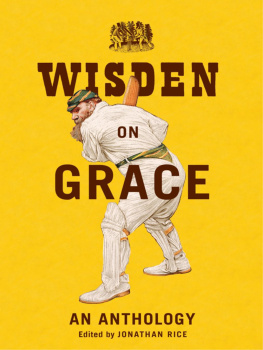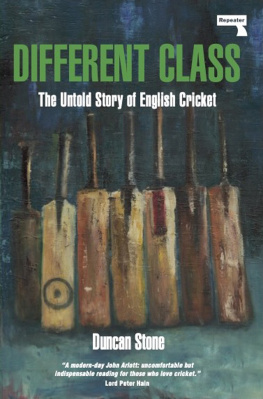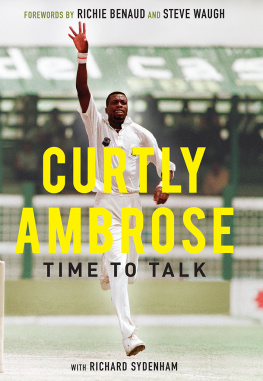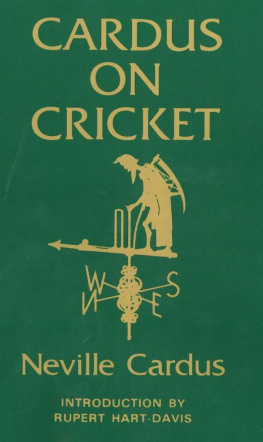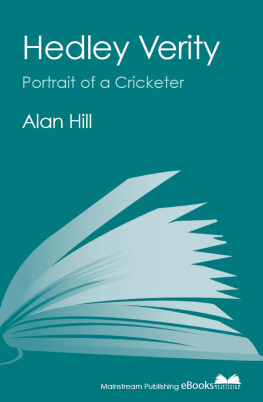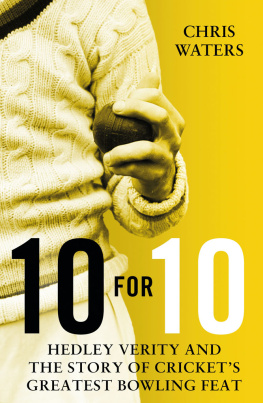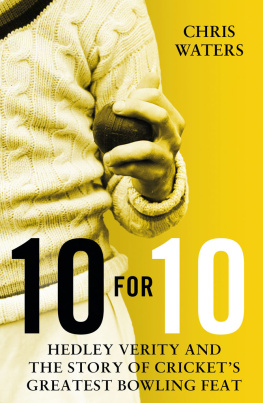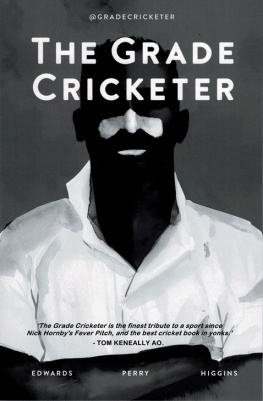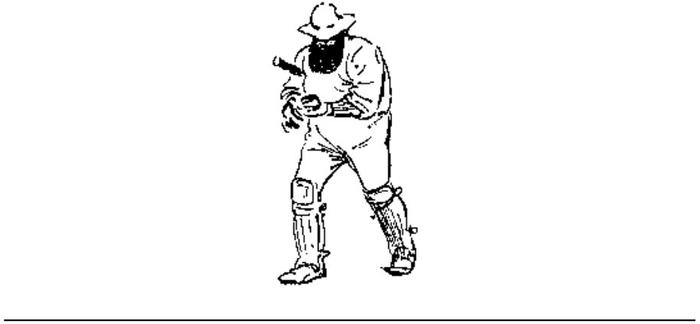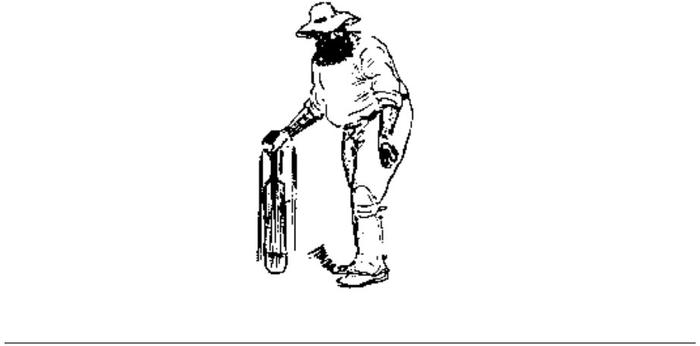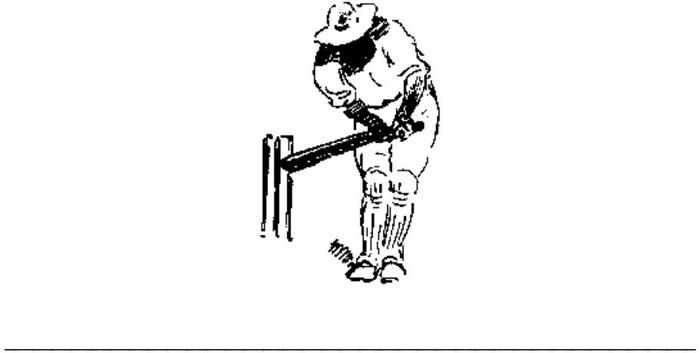I OWE three people a huge debt for their part in the writing of this book. To my wife, Angela Levin, I owe the idea in the first place, despite her admitted dislike of cricket. She also put up nobly with my absences while I was researching the book and with the many evenings and weekends when I shut myself in my study to write it. Tom Chesshyre carried out a great deal of valuable research for me; without him I could never have met my deadline, nor included so much detail about W.G.s life.
I must also thank John Blake for re-issuing the book; my agent Jonathan Lloyd, managing director of Curtis Brown; Stephen Green, former curator of the Lords Library and Museum, and his assistant, Michael Wolton, for allowing me to use their facilities and for their courteous help and advice; Roger Mann for many of the photographs used in this book and for allowing me to see letters in his magnificent collection of cricket memorabilia at Torquay; Bert Avery, curator of Gloucestershire County Cricket Clubs museum; Clive Ward, formerly chief librarian, the University of my Bristol Medical Library; Pat Chetwyn, Barbara Ellis and Mark Hanks for their editing; Wendy Wimbush, for compiling the index; and Alan Watkins. I also used the British Library; the British Newspaper Library; the London Library; and Bristol Public Librarys Newspaper Archive.
I dedicate this book to my parents: to my mother, Agnes Low, who washed my cricket whites more times than I care to remember and has always been a stalwart supporter of my professional and sporting activities; and my late father, Walter Low, who instilled in me a lifelong passion for cricket and, like W.G.s father, put up a net on the lawn so that he, my brother and I could practise to our hearts content all summer long. It gave me quite a jolt to realise that as W.G. lay dying in September 1915 at home in Mottingham, near Eltham, where London peters out and Kent begins, my father, then aged four, was living just up the road in Belvedere. I wondered if the little boy was awoken by the noise of the bombs dropped by a Zeppelin on Woolwich barracks which so upset crickets old warrior; and surely my grandfather, a keen club cricketer, must have taken the odd afternoon off to watch the ageing W.G. playing for his London County side at the Crystal Palace? The thought of grandfather enjoying a few of the twilight hours of the greatest cricketer this country has ever produced gave me a deep satisfaction.
Drawings of W.G. by Harry Furniss
M UCH was written about W.G. Grace, who was born on 18 July 1848, during his full and active lifetime and much has been written since. We have an image of him: a huge, bulky bearded man, glowering at the camera from beneath a striped cap which looks faintly ridiculous on such a massive head. Or perhaps posing at the crease, in one of those stilted Victorian photographs. Or preparing to bowl, still with his cap on, his arm much lower than anything you would see today. The image is that of a man who was very far from being an athlete, yet everyone who knows anything about cricket knows this: W.G. Grace was the greatest cricketer England has ever seen.
What else could they tell you? After all, cricket followers can recite statistics and relate them to individuals at the drop of a floppy white hat. Len Hutton? He scored 364 against Australia in 1938, a world record which stood for nearly thirty years. Jack Hobbs? Most centuries 197, to be precise. Ian Botham? In 1981, his two whirlwind centuries against Australia turned the tide and won back the Ashes. Jim Laker? He took a record nineteen wickets in a Test match in 1956. I wrote those down without consulting a single reference book, and I could do the same for many more players, both English and overseas.
Before I embarked on this biography of W.G. Grace, I could not have told you anything much about him except that he was a large, corpulent man with a beard, a doctor of medicine, an all-rounder who dominated the game of cricket in his day. Above all, he was a character, a bit of a rogue, a batsman who hated to leave the crease, a player who hated to lose, a man who bent the rules to suit himself. The one story everyone knows about him is of his dismissive retort to an umpire who had just attempted to give him out: Theyve come to see me bat, not to see you umpire.
As I set about the task of retelling his life, I frequently asked myself what the point of it was. Did the world need a new biography ? Plenty had been written, some during his life, a massive, rambling Memorial Biography compiled by the games great and good soon after his death in 1915, several at regular intervals since, notably by Bernard Darwin, better known as the father figure of modern golf writing, in 1934, by A.A. Thompson (my own favourite) in 1957, and Eric Midwinter, academic, social historian and cricket buff, whose blend of interests produced an interesting portrait in 1981.
My frequent doubts would be offset by the number of people who, on finding out my project, (a) declared that it sounded a very interesting idea, and (b) revealed that they knew absolutely nothing about W.G. beyond the sort of sketchy brushstrokes I have mentioned above. It encouraged me to plough on, in the growing belief not only that Graces life was a fascinating one but that it deserved to be told again, and perhaps reinterpreted, for a new generation. And the more I looked into his life, the less like the usual caricature it appeared to be.
Beyond a Boundary by C.L.R. James, the great West Indian writer on cricket, history and politics, should be required reading for anyone interested in the game and how it developed in the Caribbean. A Marxist, but utterly devoid of the dogmatism normally associated with people to whom that adjective is applied, James devoted two fascinating chapters of Beyond a Boundary to W.G. and his key place in the Victorian era. Most of what he wrote is brilliantly perceptive and reads as freshly as if written yesterday. His central thesis was that Grace was a typical representative of the pre-Victorian Age who nevertheless came to be one of a trio who symbolised Victorian culture , the others being Thomas Arnold, the great headmaster of Rugby, and Thomas Hughes, author of Tom Browns Schooldays. Yet you would search through the history books of the period in vain for any mention of Grace, an omission which James deplored.
Viewing him in purely cricketing terms, he also saw Grace as the founder of modern batting, and the man who almost single-handed and by modern scientific method lifted cricket from a more or less casual pastime into the national institution which it rapidly became. What are the missing words in that sentence? This pre-Victorian James was infatuated with the notion of Grace springing from a pre-industrial Arcadia and somehow rising above the Victorian hurly-burly to impose his will upon his sport.
While I am convinced by most of Jamess elegant proposition, I cannot see Grace as a pre-Victorian, and not only because Victoria had already been Queen for eleven years before he was born. Neville Cardus was surely right to have characterised him as the archetypal Eminent Victorian, perhaps the one public figure who was instantly recognisable to the common man. For my part, the more I have immersed myself in Graces life, the more modern he seems to be. The overriding impression he leaves is that he would have been as successful in the late twentieth century as he was in the equivalent period of the nineteenth .

